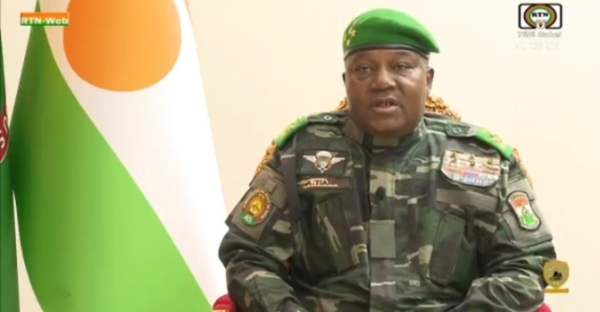Source : Sahel weather June 2025
Download the full Sahel weather report
Ever since the military regime took power in Niger, the authorities have been critical of Western powers. Abdourahamane Tiani openly accuses the West, particularly France, of seeking to destabilize the Alliance of Sahel States (SSA), which he sees as a bulwark against foreign interference. This rhetoric is in line with a logic of rupture with former partner powers, now perceived as obstacles to national and regional sovereignty.
These accusations have their roots in the diplomatic tensions between Niger, Côte d'Ivoire and Benin. Indeed, the Niger authorities accuse Benin of harboring French troops on its territory, with the alleged aim of carrying out hostile actions against the military authorities; this, according to them, justifies the continued closure of the border. Further on, General Tiani adds:
According to the authorities in Niamey, this stance is justified by evidence of subversive activities orchestrated by the West, including economic sabotage, disinformation campaigns and indirect support for armed groups. Tiani believes that Western powers want to prevent the SSA from asserting itself as a sovereign regional alternative. These elements fuel a nationalist discourse that reinforces the military regime's internal legitimacy in the face of international sanctions.
However, this strategy of accusation and rupture can be seen as a way for the Niger authorities to strengthen their political base and divert attention from certain internal challenges. By constructing an external threat embodied by the country's former Western partners, the military authorities are creating a dynamic of mobilization around national sovereignty, while consolidating regional alliances with Mali and Burkina Faso. It's a geopolitical repositioning that breaks with the classic security cooperation promoted by Western powers.
In early June 2025, the International Committee of the Red Cross (ICRC) officially announced the closure of its offices in Niger and the departure of all its staff. This decision came after pressure from the military authorities, who had demanded the organization's withdrawal. This early departure is a serious blow to humanitarian assistance capacity in a country already weakened by the terrorist threat and socio-political crises. In an interview on national television, the President asserted that the international organization had taken part in the meetings conspiratorial organized with terrorist groups Boko Haram and ISWAP in Abuja against SSA member states.
Meanwhile, Niger once again suffered a major attack in the border area with Burkina Faso, on the Makalondi Torodi axis. According to reports, nine civilians were killed in an assault attributed to jihadist groups. This bloody action illustrates the upsurge in violence in south-west Niger, and reflects a dynamic escalation of the cross-border terrorist threat in the region.
As a result, the country finds itself at a critical juncture: on the one hand, the withdrawal of the Red Cross, which drastically reduces the capacity to respond to humanitarian emergencies; on the other, the intensification of jihadist attacks, which directly threatens civilian populations.
In short, General Tiani's accusations against the West reveal a desire to redefine the balance of power in the Sahel, in a context of contestation of the established security order. While these remarks reflect a real distrust of former partners, they also serve an internal political strategy of legitimization. This shift marks a profound ideological break in Sahelian security governance, the consequences of which are still uncertain.
